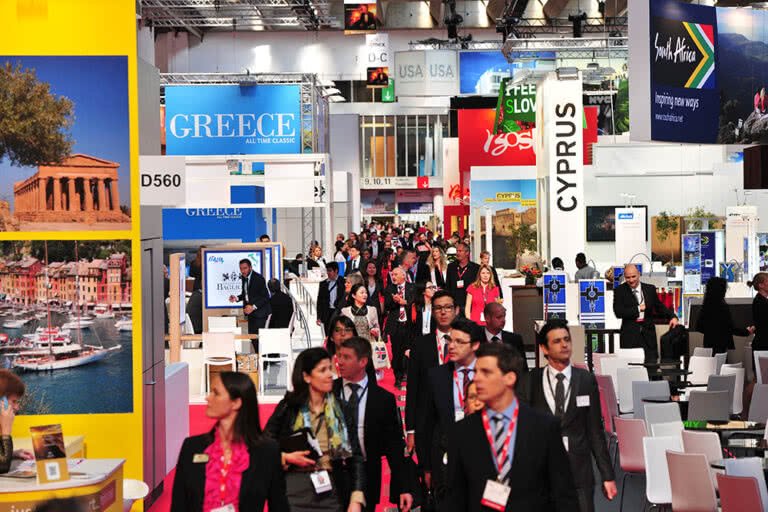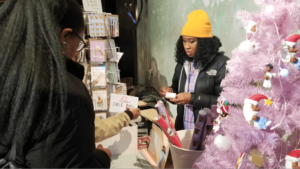 If you’re organising an event with a view to making a profit, selling tickets, exhibition space or sponsorship packages will be top of your list of priorities.
If you’re organising an event with a view to making a profit, selling tickets, exhibition space or sponsorship packages will be top of your list of priorities.
Hopefully you have team members on hand to help, but how can you make sure you get the best out of them?
Providing the proper guidance and support is essential to motivate your sales team and get the best possible results.
We asked Heather Gough, Sales Director at IMEX Group, how she motivates her team of 6 to help the company achieve a turnover of £22 million.
IMEX is a major trade exhibition for the meetings, incentive and events industry, with two editions annually – IMEX Frankfurt in April and IMEX America in October. The two shows attract more than 9,000 and 10,000 visitors respectively.
- How far in advance of a show do you start selling space/delegate places?
We never sell space onsite at the current show, as our job during the show is to look after our clients and ensure that they have the best possible show and experience. So, we start selling for the following year a couple of weeks after a show has closed. Of course, we get initial feedback onsite and we then follow-up post-show with exhibitor information and contracts. We follow this up by calls and face-to-face meetings wherever possible.
- Are there any unique challenges to managing an event sales team?
The cyclical nature of running two shows at different times of the year means that we are constantly juggling demands for both shows at the same time. Members of the team travel a lot during the year (sales trips and industry events) so there can be several weeks where not all of the team are in the office together. I also travel frequently so need to ensure my team are empowered to work on their own without close supervision. Inter-team communication is important so that we all know the current status of different clients and what space is sold/available as one exhibitor can impact another. We have a wide range of clients (national tourist offices/convention bureaus, hotel chains, individual private sector companies) so they all come with different needs and decision-making processes and this needs to be understood by the entire team.
Related: 4 Simple, data-backed tips to increase your ticket sales on Eventbrite
- How do you create a motivating environment for your team?
We are a very close team and all sit next to each other within a larger open-plan office. Different people within the team have different strengths so we work closely to maximise these. We very much work together as a team; sharing all the admin jobs as well as the travel and attendance at industry events.
- What sort of targets and goals do you set?
Each sales person has their own sales region/s that they are responsible for. For example, I look after Latin America, the Middle East, the Mediterranean and some of the hotel chains. Targets are based on previous year’s space and realistic expectations of growth.
Related: Is social media hurting your ticket sales?
- How do you celebrate achieving those goals?
The sales team is seen very much as part of the wider IMEX team so our success is part of the wider success of each show. As a sales team we would probably go out for dinner to celebrate when we have all reached our joint team sales target.
- What incentives drive the best performance?
Our best incentives are the close relationships we have with each other and with our clients, meaning that we all share a common goal to see our exhibitors do well at our shows and so return the following year. Ray Bloom, IMEX Chairman, is passionate about IMEX and the meetings industry and is a very inspirational leader who motivates and inspires the whole team from the top down. Many of the IMEX team have worked with Ray for a long time and share his passion for the industry and for creating the best shows possible.
Related: How to grow your email database (and increase ticket sales)
- What can demotivate a sales team?
The six weeks before each show are fairly intense and busy with non-stop enquiries from exhibitors helping them prepare for the show. However, we all work together as a team to get through these periods – with the help of cake and chocolate we put the hours in to get the work done.
- What do you do if morale drops?
Talk to the team and remind each other of all the successes. We work closely together to solve any issues and move forward. We regularly brainstorm together to come up with the best solutions.
Related: 16 Networking tips for sales directors
- How important is good communication/strong working relationships?
IMEX is very much a family-run business and that family feeling runs through the whole IMEX team. As I said earlier, all the sales staff sit together in the office so are always talking to each other about our different clients and keeping each other updated. Additionally due to all our travel commitments we do also send each other regular email updates to ensure we all know what is going on and have no surprises. Strong working relationships are vital – when you are all onsite working together in the build up to the show it really helps to know each other well so you can look out for each other and help each other. Spending all that time together onsite also means we get to know each other pretty well very quickly! We all know each other’s strengths and all are responsible for different tasks accordingly.
- How do you develop your salespeople?
Start them slowly – it is important that they experience a full show cycle and get to understand the industry. We begin by getting them to do general admin and then following up new enquiries, and so they start to build up their own client portfolio. In addition to sending them on training courses, we also ensure they are mentored by another member of the team so they can attend client meetings with them and get experience.
Conclusion
Robust relationships and great communication are key to forging a strong and successful sales team. Lead by example and work together to make your event a sell-out.






